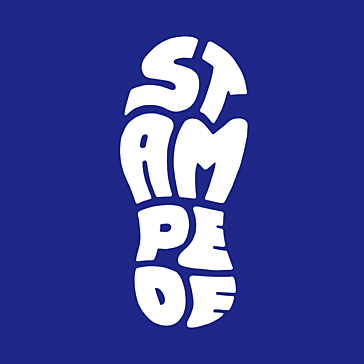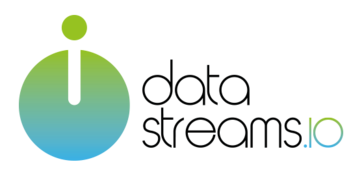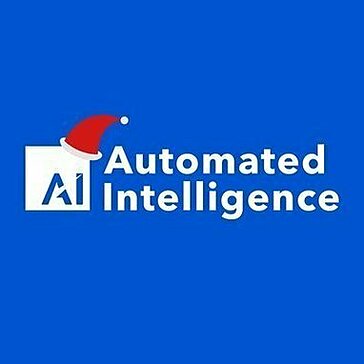3.75
Secoda Review
Discover if Secoda is worth it in our review. We cover features, pricing, security, updates, support, and overall value for money. See if it fits your needs!
Comprehensive overview and target audience
Secoda positions itself as a central knowledge hub specifically designed for data teams. It functions primarily as an intelligent data discovery platform helping organizations understand and utilize their data assets more effectively. Think of it as a google search but for your company’s data landscape. It integrates with various data warehouses databases and business intelligence tools automatically pulling metadata lineage and documentation into one accessible interface.
The platform primarily targets data scientists analysts engineers and business users who rely heavily on data for decision making. Small to medium sized businesses often find Secoda particularly appealing especially those looking to establish a stronger data governance framework without the complexity or cost associated with larger enterprise solutions. However its scalability also makes it suitable for larger organizations seeking a more agile and user friendly alternative. The core goal is to democratize data knowledge making it faster and easier for anyone within an organization to find trust and understand the data they need.
Key aspects that resonate with its audience include:
- Ease of Use: Its interface is generally praised for being intuitive requiring minimal onboarding for users to start finding value.
- Integration Capabilities: Secoda connects seamlessly with a wide range of modern data stack tools.
- Collaboration Features: It facilitates communication around data assets allowing users to ask questions share insights and document knowledge collectively.
- Ongoing Development: The team behind Secoda consistently releases Secoda updates and new features enhancing its capabilities and responding to user feedback. This commitment ensures the platform evolves alongside the needs of modern data teams.
When evaluating Secoda value for money becomes a significant discussion point. A detailed Secoda pricing comparison against competitors reveals its competitive positioning particularly for teams prioritizing ease of implementation and a comprehensive feature set out of the box. While specific costs depend on usage and scale many reviews suggest it offers strong returns by reducing time spent searching for data and improving data literacy across the organization. Furthermore robust Secoda security features like role based access control and compliance adherence address critical enterprise concerns ensuring data governance is maintained. Comprehensive Secoda support and training resources are also available helping teams maximize their investment and troubleshoot any issues effectively ensuring a smooth adoption process.
User experience and functional capabilities
Secoda user experience insights consistently point towards a clean and generally intuitive interface. The platform is designed for accessibility, aiming to reduce the friction often associated with complex data tools. Navigation feels straightforward, allowing users, even those less technically inclined, to begin exploring data assets relatively quickly. The search functionality, often compared to a familiar web search engine, is central to this positive experience, making data discovery less daunting and more efficient for daily tasks.
Understanding how to use Secoda effectively revolves around its core capabilities. Its primary function is simplifying data discovery; users can search for tables, dashboards, metrics, and documentation using natural language or specific filters. Collaboration features are embedded, allowing teams to comment on data assets, ask questions, and build a shared knowledge base directly within the platform. This fosters a more data literate culture. Key functional capabilities include:
- Automated metadata ingestion from various sources ensuring information is current.
- Clear data lineage visualization to track dependencies and data flow.
- Collaborative documentation creation and enrichment features enabling shared understanding.
- Powerful search functionality delivering relevant results across all connected assets quickly.
A significant strength lies in integrating Secoda with other tools. It boasts connectors for numerous data warehouses like Snowflake and BigQuery, BI platforms such as Tableau and Looker, and transformation tools. This seamless connection allows Secoda to pull metadata and lineage automatically, providing a unified view without requiring extensive manual input for every asset. This integration capability is crucial for maintaining a current and comprehensive data map across the tech stack, making it a central point of reference.
While a detailed Secoda implementation guide helps navigate the specifics, the initial setup is often highlighted as less complex than many enterprise alternatives. Connecting data sources is typically wizard driven, though configuring permissions and optimizing for specific organizational structures requires planning. Some common problems with Secoda reported occasionally include managing the sheer volume of metadata in very large organizations or fine tuning relevance for highly specific search queries. Addressing these often involves adopting clear governance policies from the start for smoother operation.
The Secoda team actively pushes Secoda updates and new features, reflecting a commitment to refining the platform based on user feedback and industry trends. This rapid development cycle means the tool is constantly evolving, adding value over time and ensuring it stays relevant. To maximize this investment, establishing best practices for documentation standards and defining user roles early on is recommended. Encouraging active participation in Q&A and documentation ensures the platform remains a living resource, not just a static catalog. Consistent governance and user training are key best practices for long term success.
Who should be using Secoda
Secoda is primarily designed for organizations and teams heavily reliant on data for daily operations and strategic decisions. This includes a wide spectrum of roles. Data scientists analysts and engineers benefit immensely from its ability to centralize metadata streamline data discovery and visualize lineage making their workflows significantly more efficient. They can spend less time searching for data and more time deriving insights or building models.
Beyond the core technical teams business users and stakeholders who need access to data for reports dashboards or general understanding also find value. Secoda aims to democratize data knowledge empowering these less technical users with self service capabilities. They can find verify and understand data assets without constant reliance on the data team fostering broader data literacy across the company. Small to medium sized businesses aiming to establish robust data governance and documentation practices without excessive complexity often see Secoda as an ideal fit. Larger organizations seeking a more user friendly and collaborative alternative to traditional enterprise catalogs also represent a key audience particularly departments prioritizing agility.
Essentially any organization struggling with the following should consider Secoda:
- Difficulty finding relevant and trusted data assets quickly.
- Lack of clear documentation or understanding of data lineage.
- Silos between data producers and consumers hindering collaboration.
- Challenges in maintaining consistent data governance standards.
- A need to empower more users with self service data exploration.
A typical Secoda use case scenario might involve a marketing analyst needing to understand the source and calculation of a specific customer acquisition cost metric. Using Secoda they can search for the metric view its definition see its lineage back to the source tables and read any related documentation or discussions all within one interface. Realizing the full potential however often involves implementing Best practices for Secoda such as establishing clear documentation standards encouraging active collaboration within the platform and defining user roles effectively to maintain data quality and governance long term.
Unique Features offered by Secoda
Secoda offers several avenues for organizations to tailor the platform increasing its value and aligning it with specific operational needs. Customizing Secoda for business growth is facilitated through features like configurable metadata fields allowing teams to capture specific context relevant to their unique domain or industry. You can define custom properties for data assets ensuring documentation standards match internal requirements perfectly. Furthermore granular role based access controls allow administrators to fine tune permissions determining exactly who can view edit or manage different types of data resources ensuring security and compliance are maintained as the organization scales.
Beyond basic configuration Secoda presents unique features that distinguish it within the data catalog landscape. Its strength lies not just in individual capabilities but in their seamless integration. For instance the platform cleverly combines automated metadata ingestion and lineage tracking with robust collaborative tools. Users can initiate discussions ask questions and provide answers directly within the context of a specific data asset table or report. This creates a living repository of tribal knowledge directly linked to the data itself a feature often less developed in competing tools. The search functionality is also frequently cited for its effectiveness quickly surfacing relevant information across a diverse set of integrated sources.
Integrating Secoda with other tools is notably straightforward and extensive forming a core part of its value proposition. The platform boasts a wide array of pre built connectors for popular data warehouses databases business intelligence platforms and transformation tools. This capability ensures that Secoda acts as a truly central hub reflecting the current state of the data ecosystem with minimal manual upkeep. This extensive connectivity simplifies setup and maintenance significantly reducing the burden on data engineering teams.
These customization options and unique functionalities make Secoda adaptable. While larger enterprises benefit from the scalability and control Secoda for small businesses offers a powerful yet manageable solution. SMBs can leverage the intuitive interface quick integration and collaborative features to establish strong data governance and enhance data literacy without requiring dedicated large scale implementation teams. The platform provides the flexibility to start small and expand usage and customization as data maturity grows making it a versatile choice for companies at various stages of their data journey.
Pain points that Secoda will help you solve
Many organizations grapple with significant data challenges that hinder productivity and decision making. Finding the right data often feels like searching for a needle in a haystack consuming valuable time for analysts engineers and business users alike. Even when data is found questions about its origin meaning and reliability create bottlenecks and erode trust. Secoda directly addresses these pervasive issues transforming data chaos into clarity and accessibility.
Here are specific pain points Secoda helps you overcome:
- Wasted Time and Resources: Hours spent searching across disparate systems dashboards and undocumented spreadsheets are reclaimed. Secoda provides a central searchable repository saving significant time and allowing teams to focus on analysis rather than discovery.
- Lack of Trust and Context: Ambiguity surrounding data definitions calculations and lineage leads to inconsistent reporting and flawed decisions. Secoda offers clear documentation lineage visualization and a platform for discussion ensuring everyone understands and trusts the data they use.
- Knowledge Silos and Poor Collaboration: Critical data knowledge often resides with individuals creating dependencies and hindering teamwork. Secoda fosters collaboration by allowing users to ask questions share insights and document knowledge collectively creating a shared understanding accessible to all relevant stakeholders.
- Difficult Data Governance: Maintaining consistent standards documentation and compliance across a growing data landscape is complex. Secoda simplifies governance by automating metadata collection providing tools for documentation and offering controls to manage access effectively. This applies to Secoda for different businesses sizes ensuring scalability.
- Fragmented Tooling Ecosystem: Data assets metadata and documentation are frequently scattered across various platforms. By Integrating Secoda with other tools like data warehouses BI platforms and databases it automatically centralizes this information providing a single source of truth.
Solving these fundamental problems is crucial for leveraging data effectively. By improving discovery trust collaboration and governance Secoda lays the foundation for better data driven strategies. Tailoring the platform through Customizing Secoda for business growth ensures these solutions align perfectly with your specific operational needs supporting scalability and maximizing the value derived from your data assets.
Scalability for business growth
Secoda is architected with growth in mind understanding that data needs evolve rapidly as businesses expand. Its underlying structure is designed to handle increasing volumes of metadata users and connected data sources without a significant degradation in performance. This inherent scalability ensures that Secoda remains a valuable asset not just for current needs but as your organization’s data landscape becomes more complex and expansive. It avoids the common pitfall of outgrowing your data catalog quickly requiring costly migrations later on.
The platform’s ability to scale is multifaceted. Secoda efficiently ingests and manages metadata from a growing number of databases warehouses and BI tools. As more teams and individuals across the organization begin to rely on data robust role based access controls allow administrators to manage permissions effectively even with hundreds or thousands of users ensuring governance is maintained at scale. Furthermore adding new data sources or tools to your stack is simplified thanks to Secoda’s expanding library of connectors and available APIs ensuring the catalog stays comprehensive as your infrastructure inevitably grows and changes.
This focus on scaling complements the adaptability discussed earlier. Customizing Secoda for business growth involves tailoring features and metadata to current workflows. Importantly Customizing Secoda for business scalability means leveraging these configurations and the platform’s core architecture to support larger teams more diverse data assets and higher query loads over time. Whether you are a rapidly growing startup establishing its data foundations or a larger enterprise seeking a more agile solution Secoda provides a pathway for growth ensuring your data discovery and governance capabilities keep pace with your business ambitions. Its design anticipates future needs providing a stable and reliable central knowledge hub for the long term.
Final Verdict about Secoda
After reviewing its capabilities user experience and target applications Secoda emerges as a strong contender in the data discovery and cataloging space. It successfully bridges the gap between complex technical data environments and the users who need to navigate them daily. The platform excels at centralizing disparate data knowledge automating metadata collection and fostering a collaborative culture around data assets. Its intuitive interface significantly lowers the barrier to entry making data discovery accessible beyond just the core data team.
Secoda directly tackles pervasive organizational pain points. It drastically reduces the time wasted searching for trustworthy data enhances context through clear lineage and documentation and breaks down knowledge silos via its integrated communication features. This focus on solving practical problems makes it particularly valuable for organizations struggling with data democratization and governance. Whether you are a small to medium sized business establishing data foundations or a larger enterprise seeking agility Secoda offers tangible benefits by improving efficiency and trust in data.
The platform’s strengths are further amplified by its robust integration capabilities connecting seamlessly with a wide array of modern data stack tools. This ensures it functions as a genuine single source of truth reflecting the real time state of your data ecosystem. Coupled with meaningful customization options and a design focused on scalability Secoda proves to be an adaptable solution prepared to grow alongside your organization’s evolving data needs. Continuous updates and feature additions also signal a commitment to long term value and responsiveness to user feedback.
Our final verdict on Secoda is overwhelmingly positive. It stands out as a user friendly intelligent and collaborative data catalog solution. For teams aiming to enhance data literacy streamline workflows and establish effective data governance without excessive complexity Secoda presents a compelling and well rounded offering. It effectively democratizes data knowledge making it easier for everyone in an organization to find understand and ultimately leverage their data assets for better decision making.
Advantage
Disadvantage
Find trusted data assets quickly
Automate data catalog and metadata management
Understand data lineage visually end-to-end
Centralize data knowledge and documentation easily
Connects seamlessly with your data stack
Disadvantage
Steep learning curve for non-technical users
Pricing may be high for smaller teams
Limited customization options in some areas
Can feel complex during initial setup
Fewer integrations for very niche tools
Rating
Free
$0 per Month Paid Monthly
- Up to 5 users
- 1 Data integration
- AI assistant
- Automated lineage
- Universal search
- Automated documentation
- Slack and Teams integration
Pro
$1250 per Month Paid Monthly
- All features in Free+
- Up to 10 users
- Unlimited data integrations
- Governance approval workflows
- Metadata tests monitoring
- BI integrations
- User group permissions
- API access
- Standard support
Business
$3125 per Month Paid Monthly
- All features in Pro+
- Up to 25 users
- Enterprise SSO
- SCIM
- Custom roles policies
- Git integration
- Premium support
Pro
$12000 per Year Paid Yearly
- All features in Free+
- Up to 10 users
- Unlimited data integrations
- Governance approval workflows
- Metadata tests monitoring
- BI integrations
- User group permissions
- API access
- Standard support
Business
$30000 per Year Paid Yearly
- All features in Pro+
- Up to 25 users
- Enterprise SSO
- SCIM
- Custom roles policies
- Git integration
- Premium support
Product Support
Web Based
Windows
Mac OS
Linux
Android
iOS
Phone Support
Email/Help Desk
AI Chat Bot
Live Support
24/7 Support
Forum & Community
Knowledge Base
Live Online
Documentation
Videos
In Person
Webinars
Implementation
Web Based
Windows
Mac OS
Linux
Android
iOS
Support
Phone Support
Email/Help Desk
AI Chat Bot
Live Support
24/7 Support
Forum & Community
Knowledge Base
Training
Live Online
Documentation
Videos
In Person
Webinars
Group text
Alternative Products
Frequently Asked Questions
What is Secoda?
Secoda is a modern, AI-powered data discovery and documentation platform designed to act as a central knowledge base for all your company’s data assets and metadata.
Who is Secoda best suited for?
It’s ideal for data teams (analysts, scientists, engineers) and business users in data-driven organizations, particularly small to medium-sized businesses or startups looking to democratize data access, improve collaboration, and build trust in their data without the complexity of traditional enterprise tools.
How can Secoda help me?
Secoda helps you find trusted data faster, understand its context and lineage, reduce time spent answering repetitive data questions, foster better collaboration between technical and business teams, and ultimately make more informed decisions based on reliable data insights.
What are Secoda's core features?
Key features include an automated data catalog, comprehensive data documentation capabilities, end-to-end data lineage tracking, a centralized metrics store, powerful search functionality, integrated collaboration tools, and Secoda AI for natural language querying and automated documentation assistance.
How does Secoda compare to competitors?
Compared to competitors like Atlan, Alation, or Collibra, Secoda often stands out for its user-friendliness, faster implementation speed, strong AI integration, and focus on the SMB/mid-market segment, potentially offering a more streamlined and cost-effective solution for teams prioritizing ease of use and quick value.
Is Secoda easy to implement and use?
Yes, Secoda is generally considered easy to implement and use, featuring an intuitive user interface, straightforward integration processes, and requiring less technical overhead compared to many legacy data cataloging solutions.
What does Secoda cost?
Secoda offers tiered pricing plans, typically including a free or starter tier for small teams, along with paid tiers (like Team or Enterprise) that scale based on the number of users, features needed, and data source integrations. Specific pricing usually requires contacting their sales team for a quote tailored to your needs.
Is Secoda worth it?
For organizations struggling with data discovery, documentation, and collaboration, Secoda offers significant value by centralizing knowledge, boosting productivity, and improving data trust; its worth depends on your specific pain points and budget, but its ease of use and AI features make it a strong contender, especially for teams seeking rapid adoption and impact.







